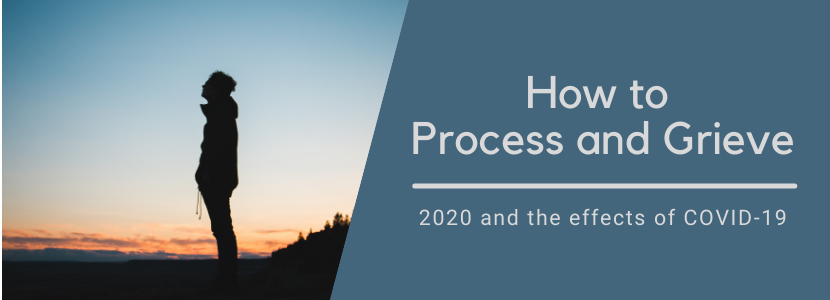
How to Process and Grieve 2020 and the Effects of COVID-19
It’s more fact than fiction that most of us suffered some sort of trauma in 2020.
Whether it was a change in jobs, kids learning at home, distance from those you love, or dealing with illness and/or loss of life from the virus itself, many of us have been living in pure survival mode.
This is leading to older adults aging faster with more loss of memory, teens and young adults feeling confused and scared, as well as an overall increase in anxiety and depression in the general population right now.
Our world was turned upside down a year ago and we are now seeing effects way beyond the actual virus.
However, now that vaccines are being distributed and numbers seem to be decreasing (at least, at the moment), winter seems to slowly be turning into spring – both literally and figuratively.
But how do we get out of survival mode and transition into feeling ourselves again?
Dr. Graves shares 3 ways to support this shift as we navigate the next year:
1. Be Aware of Your Emotions and Grief.
Grief doesn’t only consist of mourning the death of a loved one. It can stem from the loss of a job, a relationship, or even your life as you knew it. There is no right or wrong to grief and it can come to the surface at any moment.
One of the most important things you can do when processing grief is to recognize it and sit with it.
Yes, it can be uncomfortable. And yes, it can come at the most inopportune times. But, it’s necessary that we realize what it is and let it wash over us like a wave rather than ignoring it.
2. Seek Supportive Care.
It can be nearly impossible to snap your fingers and suddenly feel the numbness, anxiety, depression, etc. fade away. We can get stuck in our heads and have difficulty living from our hearts once we are ready to move on.
In addition, recovering from this past year can be even more challenging than in years past due to the change/lack of stress-management tools we have.
For many of us, an intimate dinner out with our spouse, a girls weekend getaway, a workout at the gym, or even frequently seeing co-workers at the office could help us unwind from daily stress and calm our nervous systems. But much of that has been put on hold.
This may have lead to drinking more to relax, relying on drugs to calm down, taking more prescriptions to sleep, and other survival mechanisms we have turned to for lack of other self-care tools.
It’s now time to gain your mental space back and supportive care can offer significant ways to do this in a healthy, effective, and realistic manner.
This can include:
Acupuncture – to calm the survival part of the brain so you can think from a rational perspective
Supplements – to support the brain, nervous system, digestive track, and body overall for better sleep, energy, digestion, hormonal balance, and pain management
Holistic Counseling – to work through your thoughts out loud and gain new perspective
Massage – to relax the nervous system and reduce cortisol levels that may have been running at high levels for weeks to months
Seeking assistance from others to help you process this past year can be one of the most effective things you do moving forward. Call us at (303) 688-6698 or click here to schedule an appointment.
3. Accept Responsibility and Apologize as well as Accept and Forgive.
And this goes for both others and ourselves.
We may have said things we didn’t quite mean, made choices that were less than ideal, or distanced ourselves from others in order to just get by.
And in return, others may have done the same.
So now it’s time to acknowledge those things, recognize that we have all been under extreme circumstances, and forgive.
This doesn’t mean that some relationships aren’t better left where they lie. Know that this is okay and that this may be part of your grief from the last year as well.
This time has been (and continues to be) difficult for many of us. And, as much as we may think we are fine and ready to move on, be mindful of unusual physical or emotional symptoms that may start to arise when we begin to unwind from a year of changes (such as mood changes, anxiety, exhaustion or sleep issues).
For naturopathic support in the transition out of survival mode, please call us at (303) 688-6698 or click here to schedule a complimentary 15 minute phone consultation with Dr. Graves or to schedule an in-person appointment.
The CNMA office provides holistic healthcare for those in Castle Rock, Castle Pines, Lone Tree, Highlands Ranch, Centennial, Parker, Larkspur, Monument, Colorado Springs, and the greater Denver metro area. For those outside of these areas, virtual appointments are available.

Leave a Reply